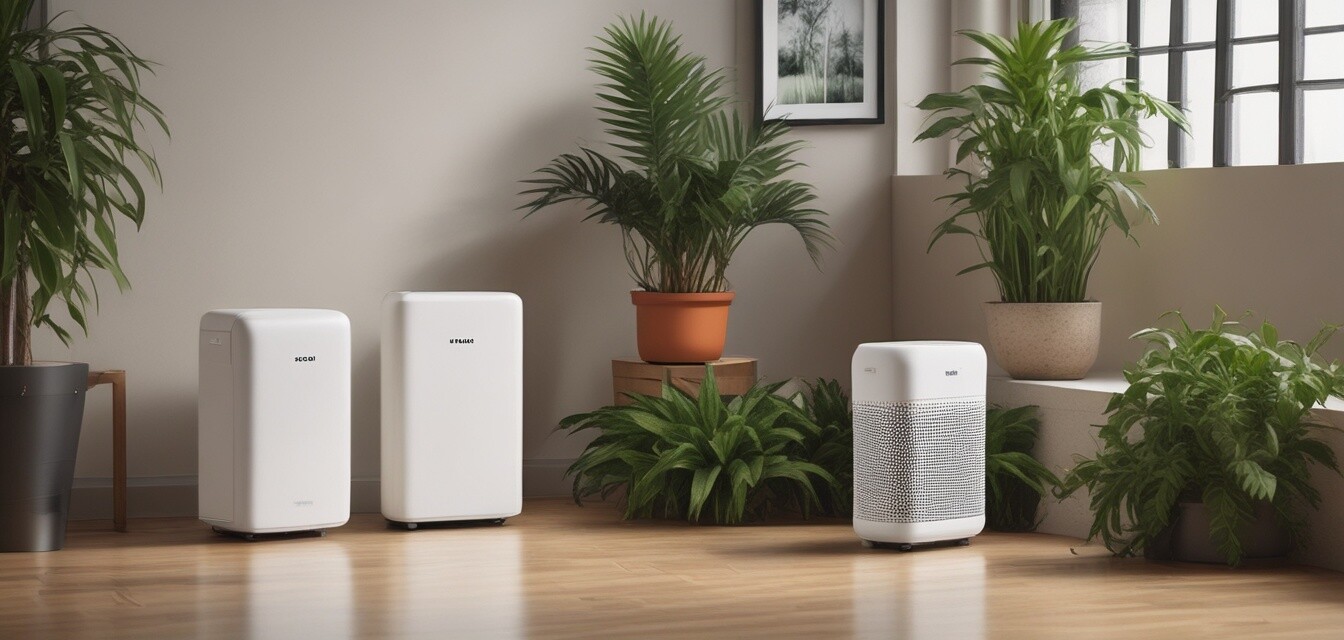
The Ultimate Guide to Choosing the Right HEPA Air Purifier
- HEPA filters are essential for removing allergens and pollutants.
- Room size and coverage area are crucial for effective air purification.
- Consider smart features and noise levels for your convenience.
- Regular maintenance ensures sustained performance of air purifiers.
- Research and compare different models based on your specific needs.
Choosing the right HEPA air purifier can greatly impact your indoor air quality. With numerous options available on the market, it is vital to understand the features, specifications, and technologies that will best suit your needs. This guide will walk you through essential criteria to consider when selecting a HEPA air purifier.
Understanding HEPA Filters
High-Efficiency Particulate Air (HEPA) filters are designed to trap airborne particles, ensuring cleaner air in your living environment. They can filter out at least 99.97% of particles that are 0.3 microns or larger, making them highly effective against dust, pollen, pet dander, and smoke.
Key Features to Consider
1. Room Size and Coverage Area
When selecting a HEPA air purifier, understanding the room size is important. Each air purifier has a specified coverage area. Ensure to choose one adequate for the size of the space you intend to use it in. Here’s a quick reference table:
| Room Size (sq. ft.) | Recommended Air Purifier CADR |
|---|---|
| Small (< 200 sq. ft.) | 50-100 CFM |
| Medium (200-400 sq. ft.) | 100-200 CFM |
| Large (400-800 sq. ft.) | 200-300 CFM |
| Extra Large (> 800 sq. ft.) | 300+ CFM |
2. Noise Levels
Consider the noise level of the air purifier, especially if you plan on using it in bedrooms or quiet spaces. Look for models that provide a decibel rating, and check for “sleep modes” that minimize noise while still purifying air effectively.
3. Filter Types
Most HEPA air purifiers come with multiple filters. Here’s a breakdown of typical filter types:
- Pre-Filter: Captures larger particles like dust and pet hair.
- HEPA Filter: Traps smaller particles, including allergens.
- Activated Carbon Filter: Reduces odors and chemical fumes.
- UV Filter: Uses UV light to kill bacteria and viruses.
Understanding Additional Features
1. Smart Technology
Some air purifiers offer smart features that connect to your smartphone, allowing remote monitoring and control. This can help you track air quality and filter status. Check our article on smart air purifiers to learn more.
2. Filter Replacement Alerts
Look for models equipped with filter replacement indicators to help you maintain optimal performance. Ignoring filter changes can reduce efficiency and air quality.
Tips for Beginners
- Always check the Clean Air Delivery Rate (CADR) for efficiency.
- Read reviews from users to gauge reliability before purchase.
- Understand the maintenance requirements for the model you choose.
- Consider the warranty period; a longer warranty often indicates confidence in the product.
Maintaining Your HEPA Air Purifier
Regular maintenance is key for the longevity of your air purifier and quality performance. Here are some maintenance practices:
- Clean the pre-filter monthly.
- Change the HEPA filter every 6-12 months, depending on usage.
- Wipe down the exterior and control panel regularly to remove dust.
- Ensure adequate ventilation around the unit.
Conclusion
Choosing the right HEPA air purifier can seem daunting, but by understanding the features, specifications, and technologies available, you can make an informed decision that best suits your needs. Remember to consider the room size, filter types, and additional features to ensure optimal air purification.
Pros
- Effective in reducing allergens and pollutants.
- Improves overall indoor air quality.
- Variety of models to suit different needs.
Cons
- Filters need regular replacement, adding to cost.
- Some units can be noisy.
- Initial purchase price can be high.
Explore More
If you'd like to explore more about air purifiers, check out our HEPA air purifiers page, or for alternatives consider exploring the activated carbon air purifiers for enhanced odor removal.

